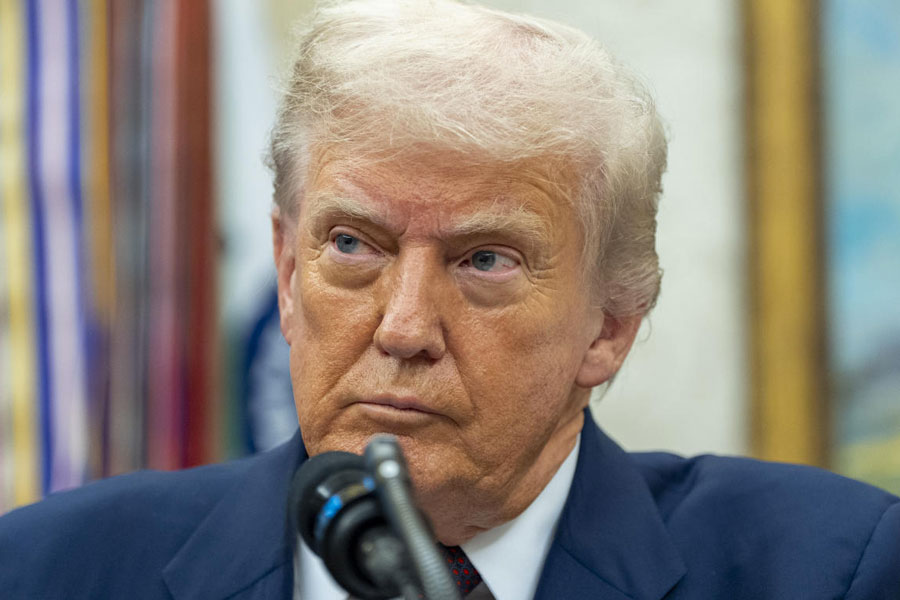President Donald Trump has secretly signed a directive to the Pentagon to begin using military force against certain Latin American drug cartels that his administration has deemed terrorist organisations, according to people familiar with the matter.
The decision to bring the American military into the fight is the most aggressive step so far in the administration’s escalating campaign against the cartels. It signals Trump’s continued willingness to use military forces to carry out what has primarily been considered a law enforcement responsibility to curb the flow of fentanyl and other illegal drugs.
The order provides an official basis for the possibility of direct military operations at sea and on foreign soil against cartels.
US military officials have started drawing up options for how the military could go after the groups, the people familiar with the conversations said, speaking on the condition
of anonymity to discuss the sensitive internal deliberations.
But directing the military to crack down on the illicit trade also raises legal issues, including whether it would count as “murder” if US forces acting outside of a congressionally authorized armed conflict were to kill civilians — even criminal suspects — who pose no imminent threat.
It is unclear what White House, Pentagon and state department lawyers have said about the new directive.
Already this year Trump has deployed National Guard and active duty troops to the southwest border to choke off the flow of drugs as well as immigrants, and has increased surveillance and drug interdiction efforts.
When he returned to office in January, Trump signed an order directing the state department to start labelling drug cartels as foreign terrorist organisations.
Trump has particularly targeted Venezuelan and Mexican organisations. In February, the state department
designated Tren de Aragua, Mara Salvatrucha (known as MS-13) and several other organisations as foreign terrorist organisations, saying that they constituted “a national-security threat beyond that posed by traditional organised crime”.
Two weeks ago, the Trump administration added the Venezuelan Cartel de los Soles, or Cartel of the Suns, to a list of specially designated global terrorist groups, asserting that it is headed by President Nicolás Maduro of Venezuela and other high-ranking officials in his administration.
On Thursday, the justice and state departments announced that the US government is doubling a reward — to $50 million — for information leading to the arrest of Maduro, who has been indicted on drug trafficking charges. The administration again described him as a cartel head, and attorney general Pam Bondi said he “will not escape justice and he will be held accountable for his despicable crimes”.
Asked about Trump’s authorisation for military force against the cartels, Anna Kelly, a White House spokeswoman, said in an email that “President Trump’s top priority is protecting the homeland, which is why he took the bold step to designate several cartels and gangs as foreign terrorist organisations”. Unilateral military assaults on cartels would be a marked escalation in the long drive to curb drug trafficking, putting US forces in a lead role on the front lines against often well-armed and well-financed organisations.
A sustained campaign would also likely raise further issues related to Trump’s push to use the military more aggressively to back a variety of his policies, often in the face of legal and constitutional constraints.
Mexico denial
President Claudia Sheinbaum of Mexico denied that the US would use its military in her country on Friday.
“The United States is not going to come to Mexico with the military. We cooperate, we collaborate, but there is not going to be an invasion. That is ruled out, absolutely ruled out,” she said.
“It is not part of any agreement, far from it. When it has been brought up, we have always said no.”
Speaking in her morning news conference, Sheinbaum said she would read Trump’s order. She said she had been assured that it did not involve the presence of US military in Mexican territory.
New York Times News Service










